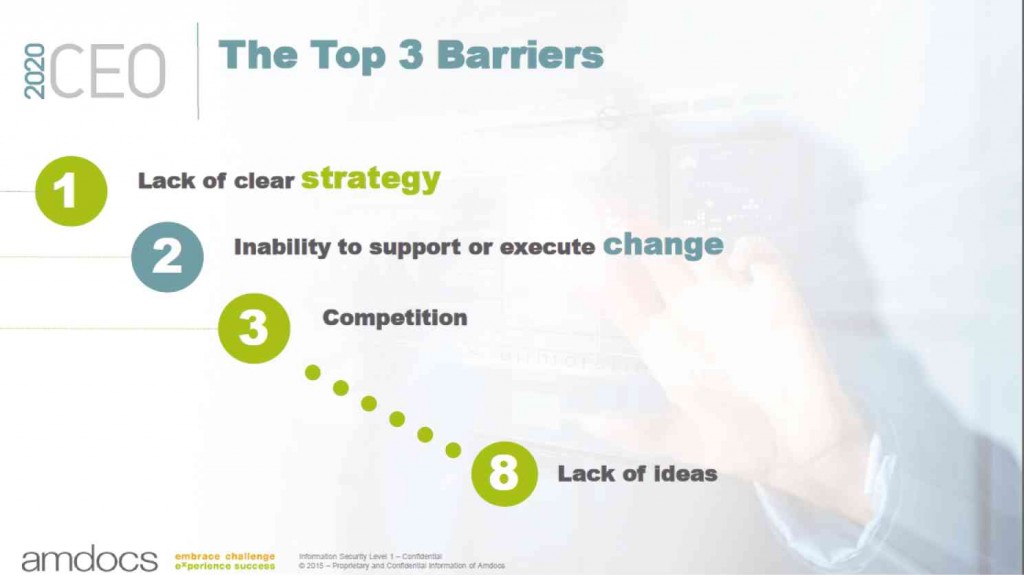To stay successful by 2020, chief executive officers must be passionate about innovation, and be able to execute change, a new global survey by customer experience solutions provider Amdocs showed.
“CEOs will need to change their management style in order to remain successful five years from now,” Amdocs said in a statement.
Four in every five (83 percent) CEOs and other senior management executives included in the study described such change as “necessary” in the midst of rapid innovation by traditional and new players, which has “revolutionized the way we communicate and consume information and entertainment.”
The study, which covered 100 communications service providers around the world, also found the majority of executives (73 percent) saying that the 2020 CEO “should be driven by a passion for innovation, and would provide the most value to the organization through driving ideas and strategy (1st) and innovation (2nd), ahead of good corporate management (3rd) and good operational management (6th),” the study, conducted for Amdocs by strategy consultancy Telesperience, said.
“Risk-taking ranked very low (10th), implying CEOs are expected to focus on keeping the numbers right,” the study also noted.
The study also found that the biggest barriers to a CEO’s success in 2020 were lack of strategy and the inability to execute change.
“To address this, CEO management styles will need to change, shifting from the currently favored pacesetting (1st) and visionary (2nd) management styles in which the CEO is expected to know where the company is going and lead it there by example, to coaching (1st) and affiliative (tied 2nd place with pacesetting) styles, which value the contribution of teamwork to end goals,” the study noted.
“Reinforcing the need to overcome the challenge of executing on innovative ideas, executives believe that by 2020, the most important innovation skill the future CEO will have is the ability to create organizational structures that support innovation and change,” the study added.
The study also found that the changing times have also called for new roles to address changes in areas of focus and new lines of business.
“The most commonly added new C-level roles hold responsibility for customer experience (1st), commercial activities (2nd) and innovation (3rd),” the study said, adding that by 2020, new C-level roles would also be added for the areas of big data and digital.
By 2020, CEOs are also likely to invest in customer experience, cloud services and big data analytics, the study also showed, though the way these investments will be made will vary.
“For customer experience, most (93 percent) plan to invest in in-house strategies while 23 percent plan to outsource, indicating some will deploy a hybrid approach. For cloud services, most (73 percent) plan to outsource, while 43 percent plan on in-house investment, with here too some taking a hybrid approach,” the study said.
“In the areas of digital services, omni-channel operation and big data analytics, more than 40 percent plan to invest in outsourcing strategies, the same level as insourcing strategies in these areas,” the study added.
“While innovation is regarded as critical to service providers’ future success, and therefore to the reputation of its CEO, this study raises concerns as to how the industry will deliver the required innovation,” said Teresa Cottam in a statement.
Cottam is chief strategist and founder at Telesperience, who led the research.
“The study shows customer experience is becoming increasingly critical, with CEOs of the largest service providers in the world viewing it as a top investment area in 2020,” Eric Updyke, group president of System Integration and Operations at Amdocs, said in a statement.
Global company Amdocs offers software solutions and services for the world’s largest communications, entertainment and media service providers. It has more than 22,000 employees and operates in over 80 countries.


